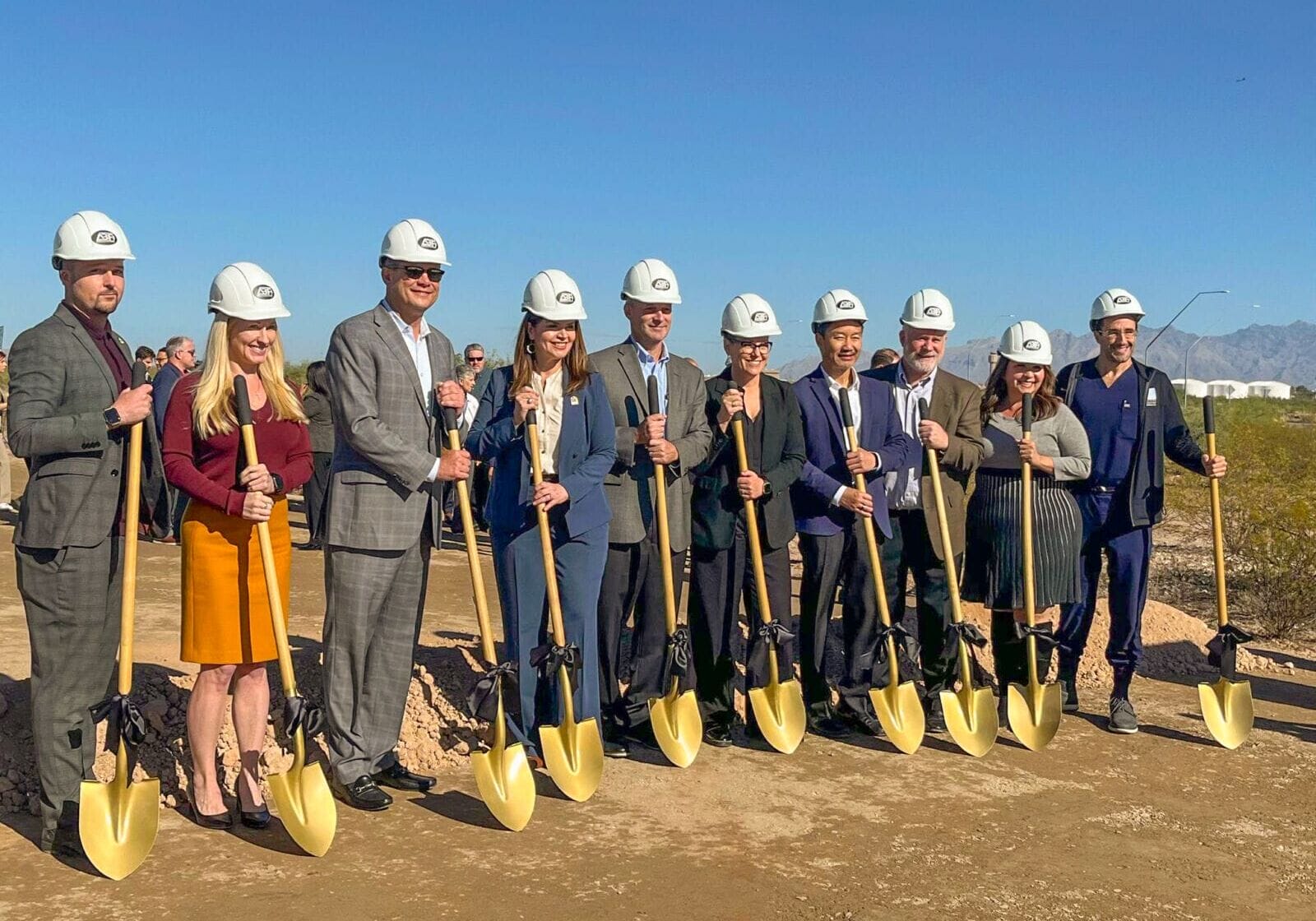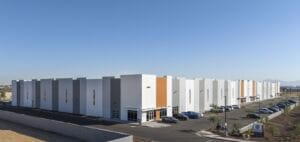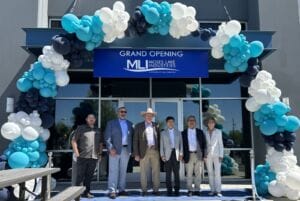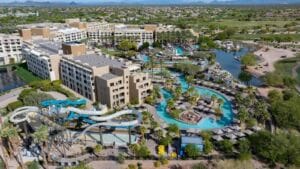On Oct. 26, American Battery Factory (ABF) broke ground on its 2-million-square-foot gigafactory in Pima County’s Aerospace Research Campus located south of the Tucson International Airport and near world-class companies such as Raytheon. Situated on 267 acres, ABF plans to build its headquarters, R&D center and initial factory module by 2025. The facility represents $1.2 billion in capital investment, will create an estimated 1,000 jobs and have an economic impact of $3.1 billion.
“This is a momentous occasion for Arizona’s advanced manufacturing ecosystem,” says Gov. Katie Hobbs. “Arizona is quickly becoming a global epicenter for sustainable technologies, including electric vehicles, solar energy, semiconductors and batteries. The influx of companies coming to the state demonstrates the modern and unique business environments that Arizona offers. Today’s groundbreaking is further proof of that.”
LEARN MORE: 5 things to know about Arizona water heading into 2024
Since 2021, there have been nine battery projects announced in the state, three of which are in Southern Arizona.
“For Arizona, this transformational investment will accelerate the growth of the clean energy sector in our state and across the country,” Hobbs continues. “It also moves us one step closer towards our energy independence goals. And I can’t think of a better place for this factory than right here in Tucson. The city offers modern transportation and aerospace infrastructure, connections to a robust regional supply chain, an advantageous geographic location and a long history of manufacturing excellence across several industries.”
AMERICAN BATTERY FACTORY
ABF’s battery cells are made with lithium iron phosphate (LFP), which the company says are the safest, longest-lasting, most reliable and environmentally friendly batteries currently available. According to an Arizona Commerce Authority press release, the global market for lithium batteries is expected to reach $105 billion by 2025, with demand set to increase tenfold over the next decade. The new facility will also have a foundry innovation line, where scientists will experiment with new battery technology in a manufacturing setting to test if it’s scalable.
“We’re all familiar with the evolution of EV cars, solar panels and a mix of related efforts many call the ‘Green Revolution,’” says John Kem, president of ABF. “And while U.S. firms have played a part, it hasn’t been a big enough role. And in many cases, a lot of the work is being done overseas with just some of the final assembly happening in the U.S. Unfortunately, that’s just the nature of how it’s been. This is an opportunity to change that … We’re going to do that by working to source raw materials from inside the U.S. and North America.”
For Tucson Mayor Regina Romero, welcoming ABF fits well into the city’s climate action and adaptation plan that puts forward a roadmap to becoming carbon neutral and creating resiliency. Part of that economic development strategy includes supporting companies that share economic priorities and sustainability values.
“American Battery Factory will bring long term, high wage jobs and help us anchor Tucson and Pima County as leaders in new emerging technology and improved energy storage efficiencies,” Romero says. “Working together, we will build an equitable, sustainable and thriving desert city with economic opportunity for all.”
Joe Snell, president and CEO of Sun Corridor Inc., notes that bringing ABF to Tucson was a competitive process that took a little over two years to come to fruition.
“This project is transformational,” he continues. “It validates our position as a player in the clean energy revolution. Most of the companies in our pipeline right now are made up of clean energy-related industries. That’s never happened before. So, this groundbreaking represents our place in the green energy future, and I can guarantee you this: more of these types of companies are coming.”
PROTECTING THE COMMUNITY
While growing Tucson’s economy and creating jobs is good for the region, doing so must be done in a way that protects both those living nearby and the environment. Adelita Grijalva, chair of the Pima County Board of Supervisors, points out that area ABF will occupy is near where an industrial solvent called trichlorethylene (TCE) was routinely dumped from the ‘50s to the ‘80s, causing nearby Tucsonans to develop cancer.
“We stand in an area where the environmental contamination of TCE tragically diminished thousands of people’s lives in Tucson’s southside, including my family, and it continues to have negative consequences,” she says. “We must be conscious and ensure that it never happens again.”
Matt Heinz, member of the Pima County Board of Supervisors, adds that ABF has promised and demonstrated that its manufacturing process is safe. The work will also be done in LEED certified buildings that use significantly less water than lithium-ion battery factories.
Grijalva concludes, “Pima County looks forward to supporting [ABF] and to helping promote a robust green economy. At the same time as these new industries expand, there has been another shift in how we view business. Pima County is paying attention to industrial water usage and the environmental impacts of industries. Here in the desert, water is a precious resource that must be protected. American Battery Factory has pledged to do just that.”




